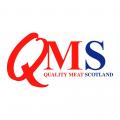The Scottish red meat industry will be showcasing Scotch Beef PGI, Scotch Lamb PGI and Specially Selected Pork in Cologne, Germany, this month at Anuga, the world's largest trade fair for food and beverages (October 5-9).
Ten Scottish exporters are attending the event where Quality Meat Scotland’s stand will highlight the Protected Geographical Indication (PGI) status of Scotch Beef and Scotch Lamb. The Specially Selected Pork brand will also be promoted to importers from around the world.
With an exhibition size of over 284,000m², the trade fair attracts over 165,000 trade visitors from 198 countries, making it a major event for many of the world’s most influential buyers.
Exporters from around Scotland will be joined by staff from Quality Meat Scotland (QMS) to promote the Scottish red meat industry to buyers and traders from across the globe and highlight the quality assurance, provenance and welfare that underpin each of the brands.
Fergus Ewing, Cabinet Secretary for Rural Economy and Connectivity will also be attending the show to meet with Scottish exhibitors, Scotland Food & Drink In-market Specialists and key European and international buyers.
Tom Gibson, Head of Market Development who is attending the show said: “Every major meat exporter in the world will be in Anuga next month. It is therefore vital that Scotland’s exporters have a strong presence at the show, highlighting what sets Scotch Beef, Scotch Lamb and Specially Selected Pork apart from their competitors in terms of quality and reputation.
“Anuga is a fantastic platform to reinforce and strengthen our key brands and offers exporters from Scotland the opportunity to secure valuable business on the world market.”
Attendance at Anuga is part financed from the £2 million fund of AHDB red meat levies ring-fenced for collaborative projects which is managed by Britain’s three meat levy bodies: AHDB, HCC and QMS.
The fund is an interim arrangement while a long-term solution is sought on the issue of levies being collected at point of slaughter in England for animals which have been reared in Scotland and Wales.
North Ayrshire monitor farm maximising business and livestock efficiency
Improved handling systems and electronic identification (EID) in cattle has helped Girtridge Farm in North Ayrshire to become safer and more efficient whilst helping to improve cattle performance.
With EID tagging in calves likely to be introduced in 2020, farmer John Howie has been taking part in an industry led pilot trial investigating how EID technology can enable him to keep accurate records and ensure traceability is maintained while cutting down on time spent visually reading tag numbers and recording data.
John Howie runs the 140-hectare Girtridge Farm, the North Ayrshire Monitor farm, in partnership with his mother and sister. They currently finish around 230 cattle all year round, some housed and others from grass.
At last week’s North Ayrshire Monitor Farm meeting, held on Wednesday 25 September, at Girtridge Farm, Dundonald, attendees heard about John’s work to utilise EID tags and Ultra High Frequency (UHF) readers to monitor cattle performance and make management changes based on the information to increase production and overall efficiency.
“We’ve gone from using pen and paper to record our data, to a new UHF reader fitted to the crush which is saving a lot of time. It has made data recording easier and a much more pleasurable experience,” said John. “Although we’ve only recently introduced the tags, the ability to have the readers fitted to the crush will improve overall productivity and will, over time, help us to better track weight gain and allows us to identify which cattle are performing for us.”
The Howies have also introduced an auto-drench gun to compliment the new EID technology which was demonstrated to attendees at the meeting. The auto-drench gun uses Wi-Fi and automatically adjusts the dosage according to the weight of the cattle.
“It’s important that all technology is integrated and the auto-drench gun will demonstrate possible savings to be made from reducing instances of over-drenching cattle, as well as decrease parasitic resistance caused by under-dosing,” said John.
The approach mirrors the ongoing work of the Moredun Research Institute. Gillian Mitchell and Fiona Kenyon from the Institute attended last week’s meeting and explained how this technology can be utilised in Targeted Selective Treatment to save time and money by only treating animals losing weight.
Girtridge Farm is one of nine monitor farms established in Scotland as part of a joint initiative by Quality Meat Scotland (QMS) and AHDB Cereals & Oilseeds with funding from the Scottish Government. The aim of the monitor farm programme is to help improve the productivity, profitability and sustainability of Scottish farm businesses.






Comments: Our rules
We want our comments to be a lively and valuable part of our community - a place where readers can debate and engage with the most important local issues. The ability to comment on our stories is a privilege, not a right, however, and that privilege may be withdrawn if it is abused or misused.
Please report any comments that break our rules.
Read the rules here